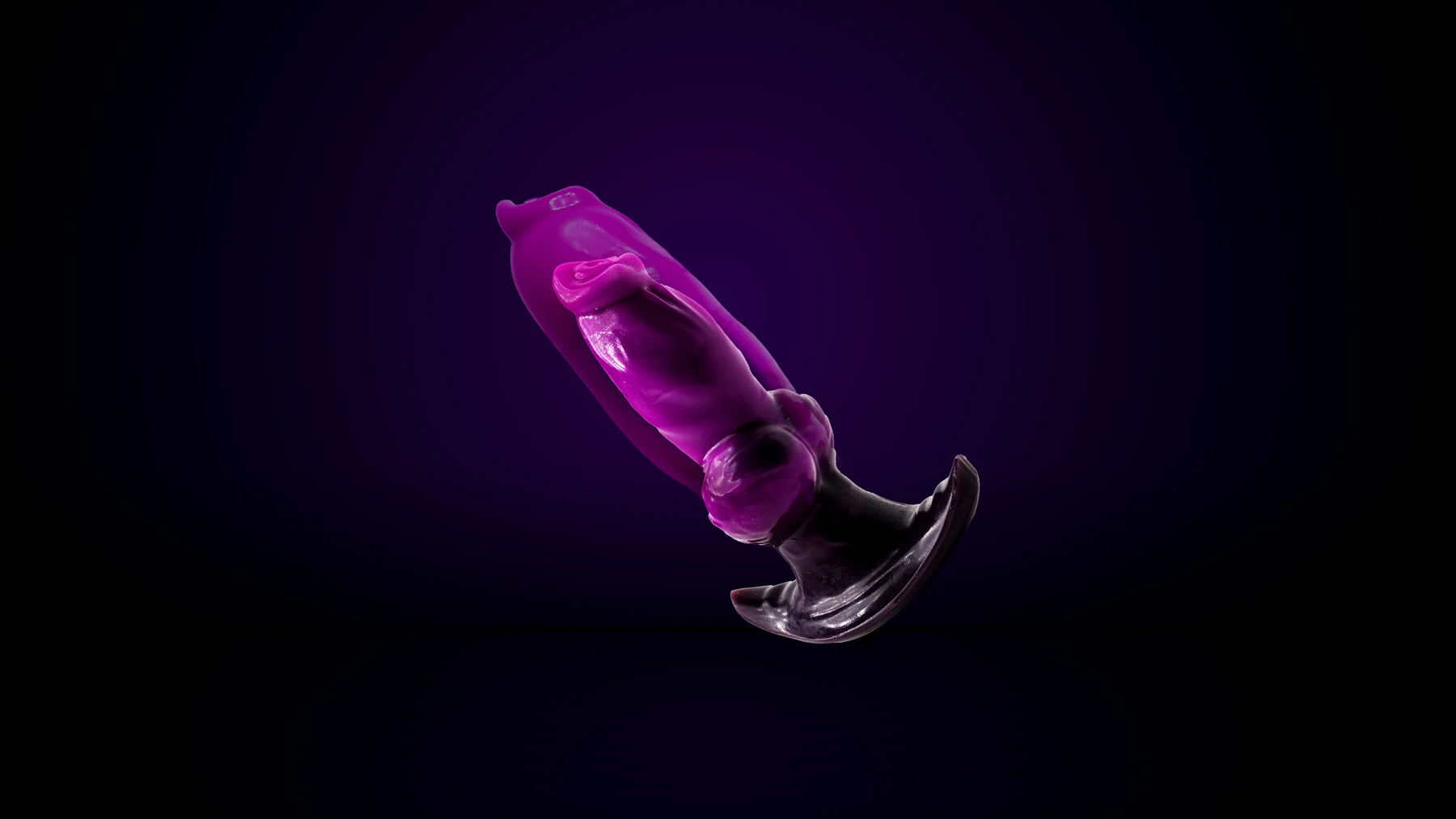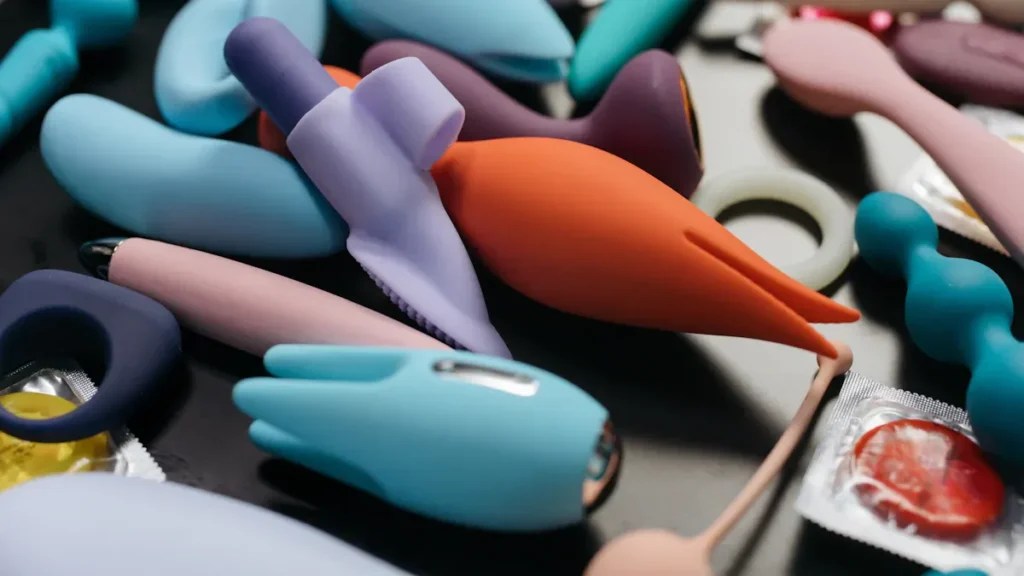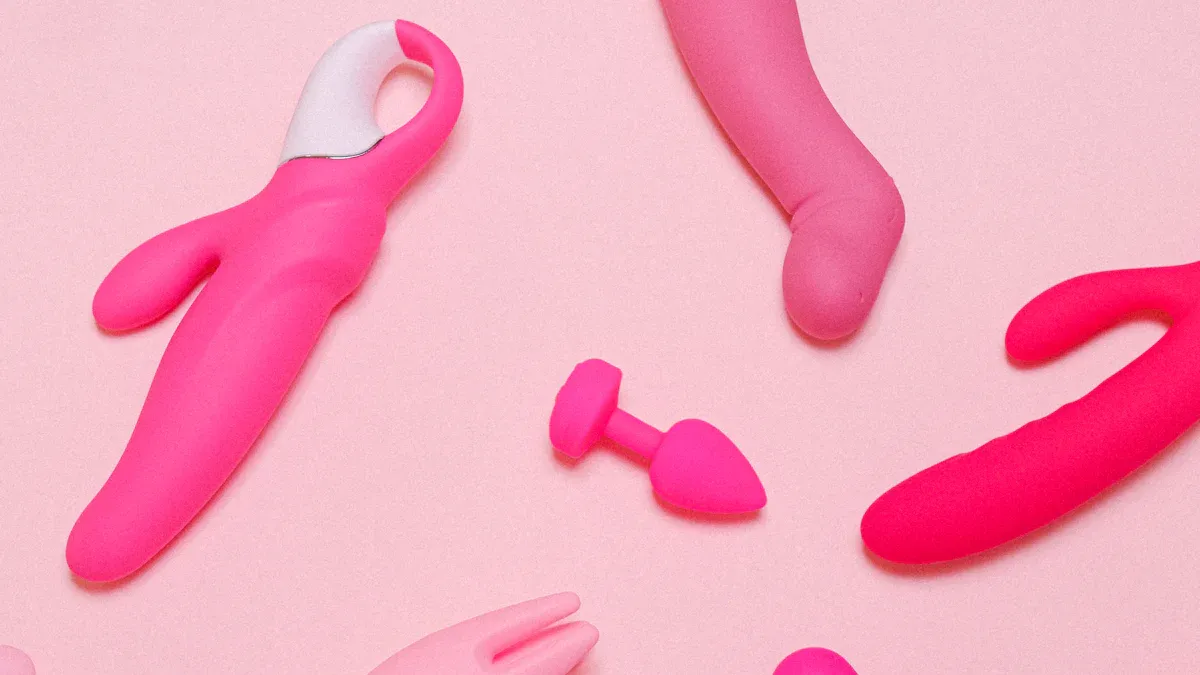Understanding the Risks of PVC Dildos
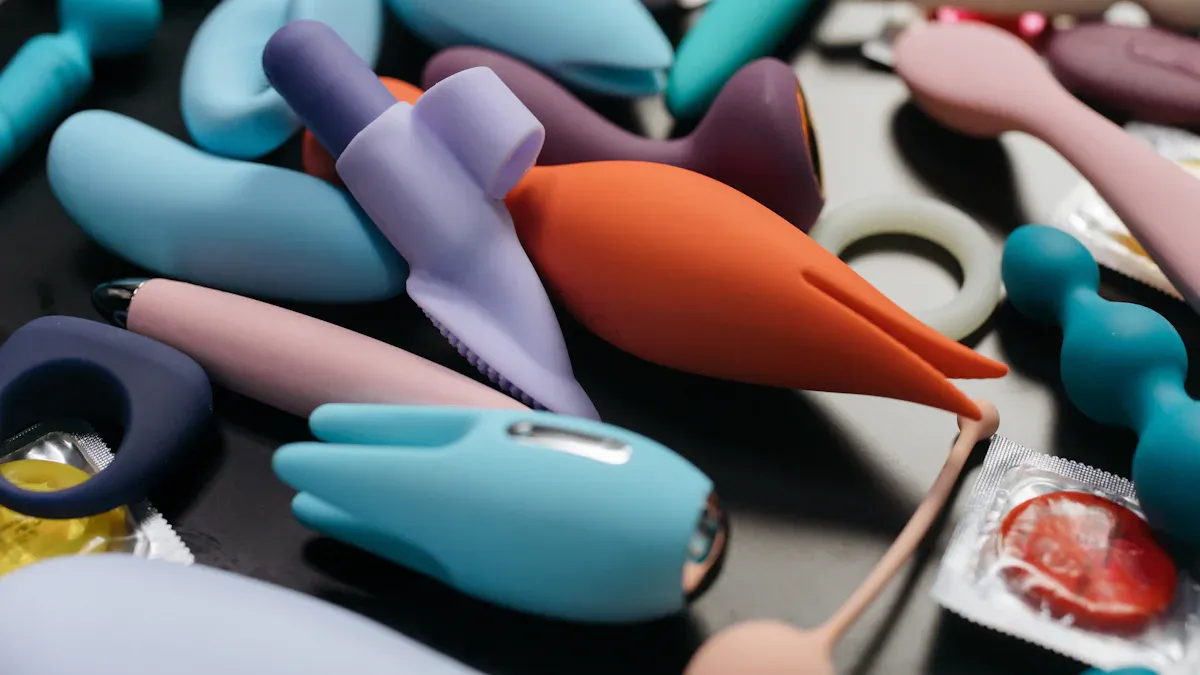
You might ask if pvc dildos are really safe. Many adult toys, like a double sided dildo, inflatable dildo, or even a public dildo, use pvc because it is soft and bends easily. But pvc dildos have big safety risks. Studies show that phthalates in pvc can leak out and get into your body. These chemicals can cause health problems like hormone changes, cancer, and immune system issues. When you use a pvc dildo or other pvc sex toys, you risk more than just getting an infection. Adult toys made from pvc can also hold bacteria, so they are not as safe as you may think.
Phthalates in pvc dildos can cause:
Endocrine disruption
Fertility problems
Higher cancer risk
Picking safe sex toys is important for your health. Adult toys made from safer materials can help you stay away from these risks.
What Are PVC Dildos?
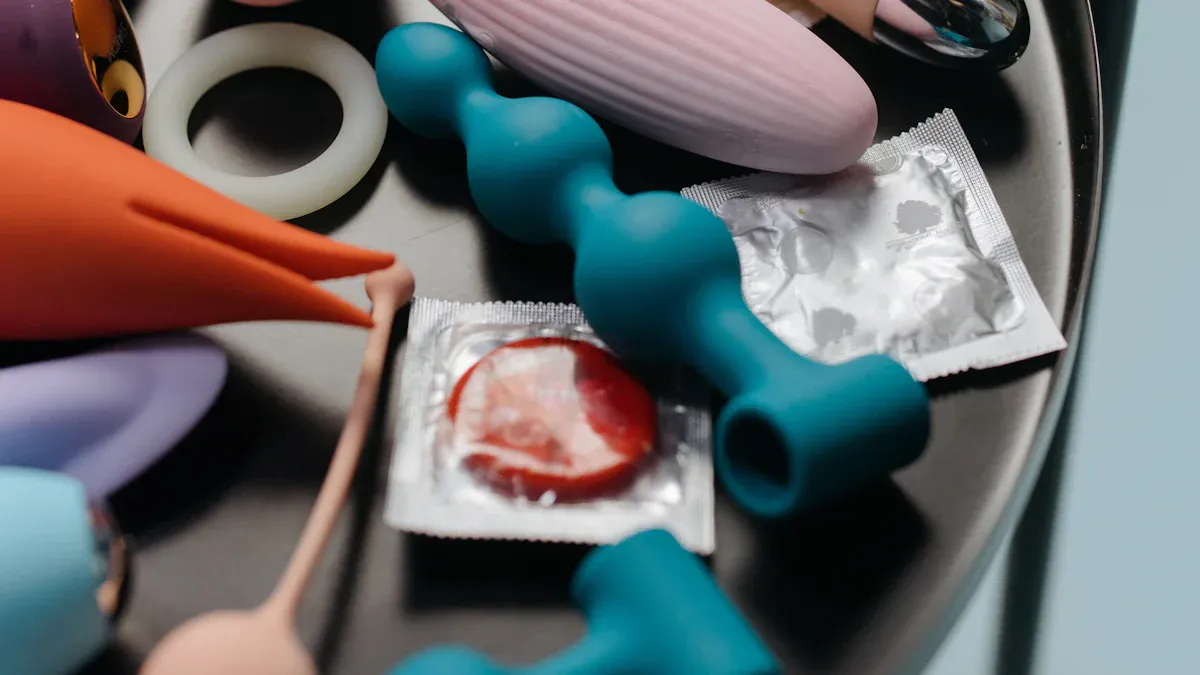
Material Overview
You might ask what pvc dildos are made of. These toys use polyvinyl chloride, called pvc. To make pvc soft, companies add plasticizers. Most of these are phthalates. This makes the dildo feel bendy and squishy. Phthalates can be a big part of the toy. Some jelly dildos have up to 70% phthalates by weight.
The main things in pvc sex toys are:
Polyvinyl chloride (pvc) as the main part
Plasticizers, mostly phthalates, to make it soft
Other things like color and sometimes antimicrobials
You almost never see all the chemicals listed on the box. Some pvc sex toys might have banned chemicals. These can be certain phthalates or chlorinated paraffins. Sometimes, they are over safe limits. The chlorine in pvc can also make toxic stuff during its life. So, even if a dildo looks safe, it might still have hidden dangers.
Note: If a pvc dildo says phthalate-free, it does not always mean it is safe. Makers might use other plasticizers that are not listed.
Why PVC Is Used
Pvc is used in many adult toys because it is cheap. It is also easy to shape. Companies can make lots of pvc sex toys fast and for little money. Plastic injection molding helps make dildos with cool shapes and textures. This way, toys can be made without cracks, so bacteria have fewer places to hide.
Here is why pvc is used for sex toys:
It costs less to make
It can be shaped into many forms
It is good for making lots of toys at once
It lets companies make fun designs
The US sex toy market is getting bigger. Pvc helps companies keep up with what people want. New machines make it even easier to make cheap pvc dildos. Even though there are risks, many toys still use pvc because it is easy and cheap.
Health Risks of PVC
Phthalates Exposure
When you use pvc dildos, you expose yourself to phthalates. These are chemicals added to make pvc soft and flexible. Many pvc sex toys contain high levels of phthalates. Some studies found that certain dildos had phthalate concentrations as high as 243,000 parts per million. This is much higher than what is allowed in children’s toys in the US and Europe.
Phthalates can leach out of the material, especially when you use the dildo with heat, friction, or body oils. If you use a vibrating toy, the movement can make even more phthalates come out. You might notice an oily residue or a strong smell on your pvc dildo. These are signs that toxic chemicals are leaking out.
Phthalates are not just a problem for the environment. They can affect your health, too. Animal studies show that phthalates can cause cancer and damage the reproductive system. Some research links phthalates to sperm damage and fertility problems in both rodents and humans. Even though some agencies do not call phthalates toxic or cancer-causing for humans yet, many experts warn about the risks. You should know that some toys labeled “phthalate-free” still contain these chemicals.
Note: The US Consumer Product Safety Commission does not require warning labels for phthalates in adult toys. You may not know what you are exposed to.
Porosity and Bacteria
PVC is a porous material. This means it has tiny holes that you cannot see. When you use pvc sex toys, bacteria and mold can get trapped inside these holes. Even if you clean the surface, germs can stay deep inside the toy. This makes it hard to keep your dildo safe and clean.
Porous toys like pvc, TPR, and TPE can hold onto bacteria and fungus. Over time, these germs can grow and cause infections or irritation. You cannot fully sanitize a porous dildo, even with antibacterial wipes or cleaners. Experts say you should avoid using porous pvc sex toys for internal use. If you do use them, always use a condom over the toy to lower your risk.
Why porous pvc sex toys are risky:
Bacteria and mold can hide inside the toy
Cleaning only removes germs from the surface
Porous toys can cause rashes, burning, or infections
Over time, the risk of health problems goes up
Non-porous materials like silicone, glass, or metal are much safer. You can clean and sanitize them fully. If you want to avoid the health risks of pvc, choose non-porous toys.
Color Changes and Degradation
PVC sex toys do not last forever. Over time, you might see your dildo change color, become sticky, or start to smell bad. These are signs that the material is breaking down. When pvc degrades, it can release more toxic chemicals into your body. This makes the health risks of pvc even higher.
You might notice that your adult toys feel oily or leave a residue on your hands. This happens when phthalates and other toxic chemicals leak out. The toy may also become softer or lose its shape. If you see any of these changes, you should stop using the toy right away.
Tip: Always check your pvc sex toys for changes in color, texture, or smell. Replace them if you notice any signs of degradation.
PVC dildos are cheap and easy to find, but they come with serious health risks. The porous nature, toxic chemicals, and tendency to break down make them a risky choice for your body. You deserve safe, clean, and long-lasting sex toys.
Safety Claims and Potential Health Risks
“Phthalate-Free” Labels
Many dildos and adult toys say they are “phthalate-free.” This label can make you feel safe. You might think the toy has no harmful chemicals. But “phthalate-free” does not mean the toy is totally safe.
Manufacturers use “phthalate-free” to show their pvc dildos do not have certain phthalates. But this does not mean the toy has no risky chemicals. Companies often use other plasticizers instead of phthalates. Some of these new chemicals have not been tested much. You cannot always know if these chemicals are safe for your body.
Note: “Phthalate-free” pvc can still have other additives that may cause health risks. Always look for more details about the materials used.
There are no strict rules for using the “phthalate-free” label on adult toys. No government group checks every dildo or sex toy for hidden chemicals. Some companies may use the label even if their toys have a little phthalate. This makes it hard to trust the label.
To lower your risk, use a condom with any pvc dildo, even if it says “phthalate-free.” This can help protect you from unknown chemicals and health risks.
“Body-Safe” PVC
Some dildos and adult toys are called “body-safe” pvc. This term makes the toy sound safe for your body. Many companies use it to make their toys seem trustworthy. But “body-safe” does not always mean what you think.
Groups like the FDA, EPA, CDC, and NIH have studied phthalates and other chemicals in pvc. They found most people have exposure levels below safety limits. The EPA’s IRIS program and the FDA say normal use of pvc does not cause clear harm. Many companies now use high-molecular-weight phthalates or non-phthalate plasticizers. These are less risky. Changes in the industry have helped lower some worries.
But some new studies question if these safety limits are strict enough. Some scientists think even small amounts of phthalates and other chemicals in pvc could cause health risks over time. These risks include hormone changes, fertility problems, and cancer. The debate is still going on. New research may change what we know about safety in the future.
Independent groups like NSF International test and certify pvc products. They check for chemical leaching and make sure it stays at safe levels. NSF uses audits and lab tests to keep standards high. But some people worry about industry money and self-reporting. They say more independent testing is needed to make sure toys are truly safe.
Here is a quick look at what “body-safe” pvc means:
Claim | What It Means for You | Limitations |
|---|---|---|
“Phthalate-Free” | No banned phthalates used | May use other risky plasticizers |
“Body-Safe” | Meets current safety standards | Standards may not cover all risks |
Certified by NSF | Tested for chemical leaching | Some debate about independence |
You should be careful when you see “body-safe” or “phthalate-free” on a pvc dildo. These claims do not promise the toy is truly safe. You may still face health risks from unknown chemicals or from the porous pvc. If you want to be really safe, pick dildos and adult toys made from non-porous, non-toxic materials. These choices give you better protection and peace of mind.
Identifying Unsafe PVC Dildos
Warning Signs
You can spot unsafe pvc dildos by checking for clear warning signs. Many adult toys made from pvc will show problems as they age or break down. Watch for these signs:
A strong chemical smell. If your dildo smells harsh or unpleasant, it likely contains low-quality pvc and phthalates.
Changes in color or texture. When a pvc dildo becomes sticky, jelly-like, or gooey, the material is breaking down.
Loss of shape. If your dildo turns into a soft blob or loses its form, it is no longer safe.
Oily residue. If you notice a greasy film on your hands after touching the toy, chemicals are leaking out.
Unusual odors. A bad smell can mean bacteria or mold is growing inside the toy.
Tip: The smellier the pvc sex toys, the more likely they contain unsafe materials. Always trust your senses when checking adult toys for safety.
Safe Use Tips
You can lower your risk by following some simple steps when using pvc sex toys. Good hygiene and smart choices help keep you safe.
Always clean your pvc dildo before and after each use. Use warm water and mild soap to remove surface germs.
Use a condom over pvc sex toys. This adds a layer of protection, but remember, phthalates can still pass through condoms.
Never share adult toys made from pvc. Sharing increases the risk of spreading bacteria and infections.
Replace your dildo if you see any signs of damage, color change, or odor. Old or degraded pvc is not safe.
Buy adult toys from trusted brands that provide clear safety information. Avoid cheap or suspicious products.
Choose non-porous, body-safe materials like silicone, glass, or stainless steel for better hygiene and safety.
If you feel irritation or burning after using a pvc dildo, stop using it and talk to a doctor.
Good hygiene keeps you safe. Pick adult toys that are easy to clean and do not hold bacteria. Your health and safety matter most.
Body Safe Sex Toys: Alternatives to PVC
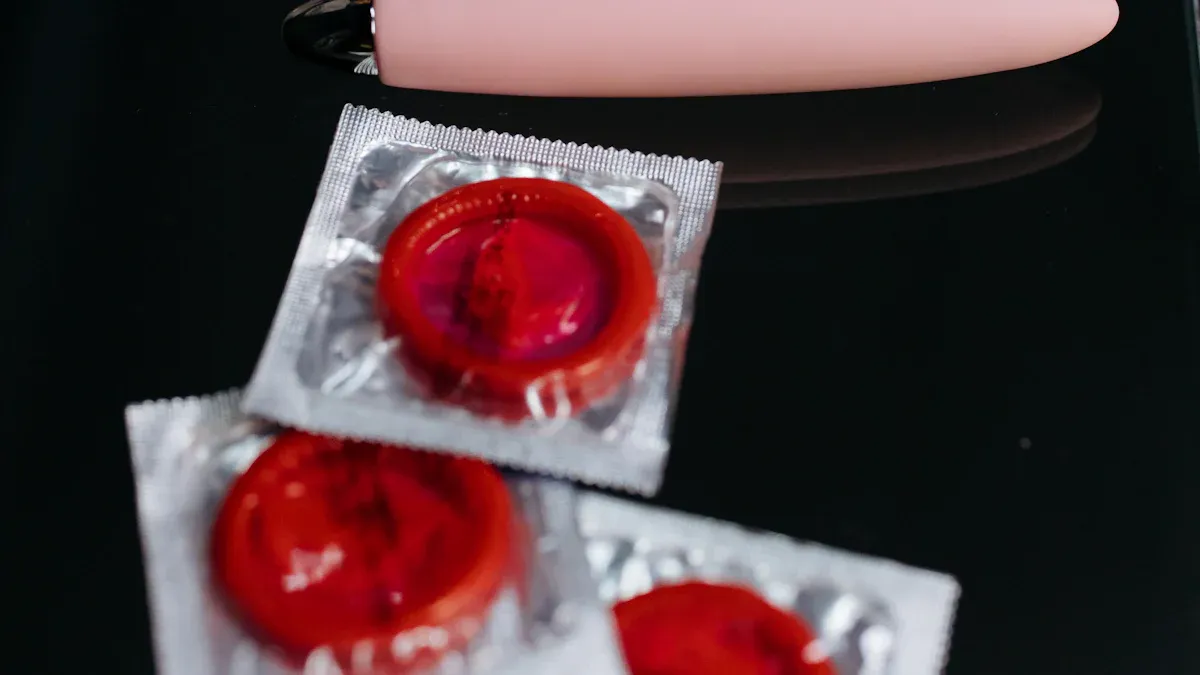
When you want safer sex toys, you have many choices. Picking body safe sex toys made from non-toxic materials helps keep you healthy. Here is a table that shows how some top choices compare to PVC:
Material | Safety Profile | Porosity | Health Concerns | Cleaning Ease |
|---|---|---|---|---|
PVC (Jelly Rubber) | Has harmful phthalates and toxins | Porous | Chemical burns, hormone issues | Hard to clean |
Medical-grade Silicone | Body-safe, hypoallergenic, non-porous | Non-porous | Very few health risks | Easy to clean |
Stainless Steel | Strong, non-porous, body-safe | Non-porous | No known health risks | Easy to clean |
Glass | Non-porous, body-safe | Non-porous | No known health risks | Easy to clean |
Silicone
Silicone sex toys are very popular. Body-safe silicone is non-toxic and does not cause allergies. It is also non-porous, so germs cannot hide inside. You can wash silicone toys easily and keep them clean. Medical-grade silicone meets high safety rules. You do not have to worry about phthalates or other bad chemicals. Always use water-based lube with silicone toys to keep them nice.
Glass
Glass sex toys are made from borosilicate glass. This glass is non-porous and safe for your body. You can boil glass toys or put them in the dishwasher to clean them. Glass does not leak chemicals, so you avoid the dangers of PVC. You can also heat or cool glass toys for new feelings. Many people like how smooth and easy to clean glass toys are.
Stainless Steel
Stainless steel toys are strong and safe. They are non-porous and do not let germs in. You can wash them with soap and water or boil them. Stainless steel is safe for most people. If you are allergic to nickel, pick toys with less nickel. These toys last a long time if you take care of them.
Other Safe Materials
Other safe choices are ABS plastic and some ceramics. These are non-toxic and simple to clean. Experts say non-porous toys are best because they do not hold germs or leak chemicals. These toys are also better for the planet and can sometimes be recycled.
Picking safe, non-toxic toys made from body-safe materials helps you stay healthy and worry less. You should have toys that are easy to clean and safe every time.
You have learned that using a pvc dildo can be risky. It can leak chemicals and cause infections. The toy can also break down over time. Many people pick dildos made from non-porous and non-toxic materials. These are safer and easier to clean. Research shows that medical-grade silicone, glass, and metal dildos are better than pvc. If your pvc dildo changes color or smells bad, get rid of it. Throw away old pvc toys and choose a new one made from body-safe materials. Your health is important, so always pick a safe dildo.
Many people like non-porous dildo materials more than pvc because:
Medical-grade silicone dildo feels soft and is easy to keep clean.
Glass dildo can be cleaned very well.
Metal dildo is strong and safe to use.
Experts say pvc dildo can hold germs, but non-porous dildos lower this risk.

